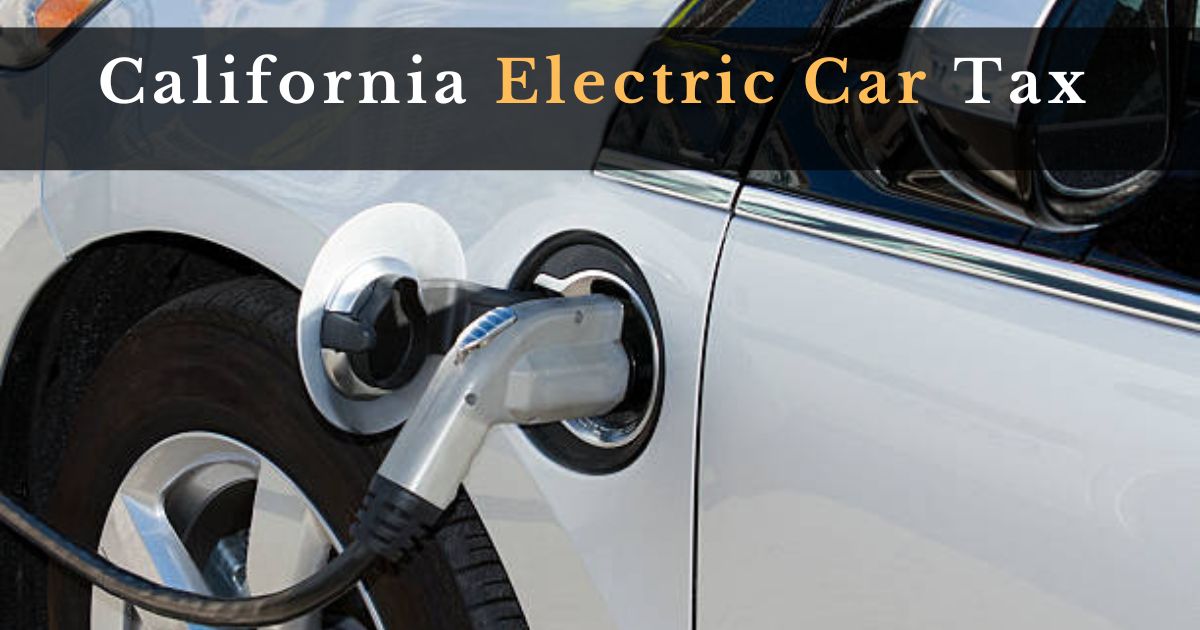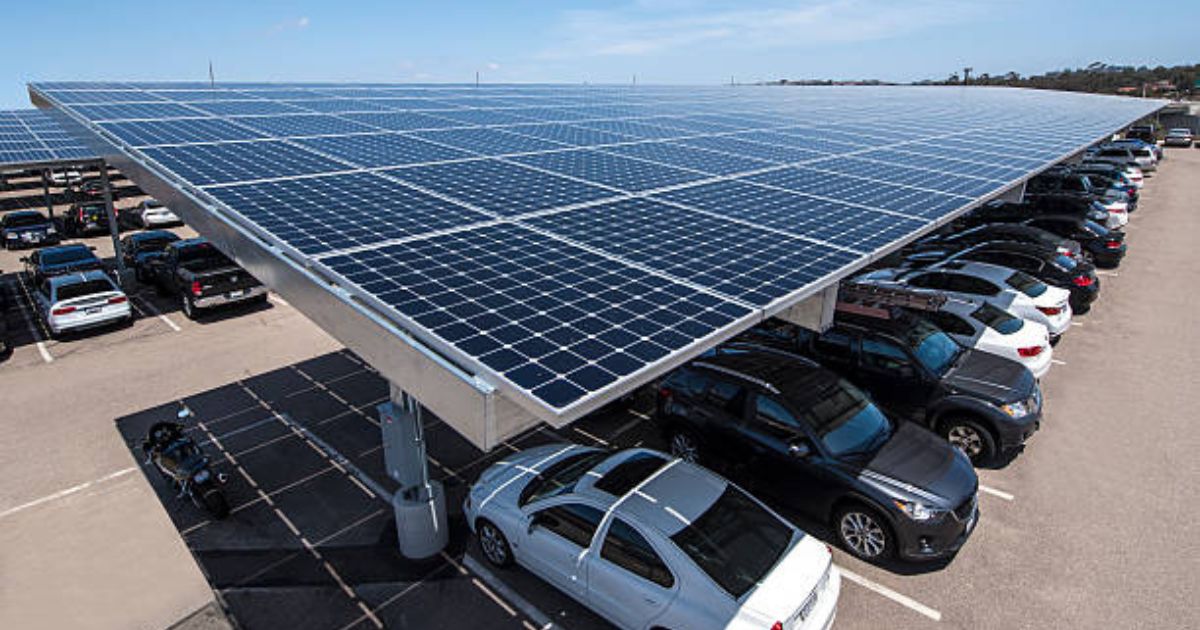California Electric car tax, Switching to an electric car (EV) in California can save you a lot of money. This guide will explain the tax credits and rebates you can get for electric cars in California, helping you choose the right car for you.
California Electric Car Tax: A Simple Explanation
California, known for its commitment to environmental sustainability, has introduced various policies to encourage the use of electric cars. One such measure is the California Electric Car Tax. Let’s break it down into simple terms so everyone can understand what this tax is all about and how it affects you.
What is the California Electric Car Tax?
The California Electric Car Tax is essentially a fee imposed on electric vehicle (EV) owners. Its primary goal is to help fund the maintenance of the state’s roads and infrastructure. While gasoline-powered vehicles contribute to these funds through fuel taxes, electric cars, which don’t use gasoline, contribute differently through this specific tax.
Why Choose an Electric Vehicle?
Electric cars are not just eco-friendly; they also offer long-term savings. They have lower fuel costs, reduced maintenance expenses, and various incentives that make them an attractive choice. In California, where environmental consciousness is high, these benefits are even more significant.
Why Does California Have an Electric Car Tax?
California’s aim with the electric car tax is twofold: promoting greener transportation and ensuring that EV owners contribute their fair share to road maintenance. With the growing number of electric cars on the roads, it’s crucial to maintain funding for infrastructure, which traditionally came from fuel taxes paid by gasoline vehicle owners.
How is the Electric Car Tax Applied?
This tax isn’t a one-size-fits-all. It’s calculated based on factors like the type and value of the electric vehicle. Newer and more expensive electric cars generally attract higher fees compared to older or less costly ones.
Registration Fees for Electric Cars
When you register your electric car in California, you’ll notice some additional fees. These fees are higher than those for gasoline cars, mainly because they include the annual road usage fee designed to compensate for the lack of gasoline tax contributions.
Annual Road Usage Fees
In addition to the standard registration fees, electric car owners must pay an annual road usage fee. This fee varies based on the car’s market value and is designed to help cover the costs of road maintenance and infrastructure improvements.
Are There Exemptions?
Yes, some vehicles and owners might be exempt from certain fees. For instance, low-income individuals or owners of electric motorcycles might qualify for exemptions. To apply, you generally need to provide documentation proving eligibility, such as income statements or vehicle specifications.
Tax Credits and Incentives for Electric Cars
Despite the additional fees, owning an electric car in California comes with several financial perks. Both federal and state governments offer tax credits and other incentives that can significantly reduce the overall cost of purchasing and owning an electric vehicle.
| Model | Price (USD) |
Federal Tax Credit
|
| Tesla Model 3 | 46,990 | Up to $7,500 |
| Chevrolet Bolt EV | 31,000 | Up to $7,500 |
| Nissan Leaf | 28,385 |
Up to $7,500 (may not be eligible for full credit due to battery sourcing requirements)
|
| Ford Mustang Mach-E | 43,895 |
Up to $7,500 (may not be eligible for full credit due to battery sourcing requirements)
|
| Hyundai Kona Electric | 33,450 | Up to $7,500 |
How to Apply for Tax Credits
Applying for these credits involves a few steps:
Gather all necessary documents, including purchase receipts and vehicle identification.
Complete the appropriate forms, which can typically be found on the state or federal tax websites.
Submit your application within the designated time frame to ensure you receive your credits.
Impact on Electric Car Owners
Even with the electric car tax, owning an electric vehicle can still be financially beneficial. When you consider the savings on fuel and maintenance, electric cars often cost less to run over time compared to traditional gasoline vehicles. Plus, there are the environmental benefits, which make the higher upfront costs and additional taxes worthwhile.
Challenges Faced by Electric Car Owners
Electric car owners do face some challenges, primarily related to navigating the various fees and understanding their tax obligations. However, by staying informed and utilizing available incentives, these challenges can be managed effectively.
Future Changes to the Tax
The electric car tax is likely to evolve as the number of electric vehicles on the road continues to grow. Future changes might include adjustments to the fee structure or new incentives to further encourage the adoption of electric vehicles.
Comparing California’s Electric Car Tax to Other States
California’s approach to taxing electric cars is somewhat unique. While other states also impose fees on electric vehicles, California’s focus on balancing incentives with fair contributions to infrastructure funding sets it apart.
Public Opinion on the Electric Car Tax
Public opinion is mixed. Many electric car owners appreciate the state’s efforts to promote cleaner transportation but feel the additional fees are a bit of a burden. Others understand the need for these fees to maintain the state’s roads and infrastructure.
The California Electric Car Tax is a necessary measure to ensure that all road users, including electric vehicle owners, contribute to the maintenance of public infrastructure. While it adds some additional costs for EV owners, the overall benefits of electric cars, including savings on fuel and maintenance, make them a worthwhile investment. Plus, the various tax credits and incentives can help offset these additional costs.
FAQs
What is the current tax rate for electric cars in California?
The tax rate varies based on the vehicle’s value and type. It’s good to check the latest figures on the California Department of Motor Vehicles (DMV) website.
Are hybrids subject to the electric car tax?
Generally, hybrids are not subject to the same fees as fully electric cars, but there might be other fees applicable depending on the model and its emissions.
How can I reduce my electric car tax liability?
Take advantage of all available tax credits and incentives, and ensure your vehicle qualifies for any exemptions.
Will the electric car tax discourage people from buying electric cars?
It might be a consideration, but the overall savings and environmental benefits of electric cars usually outweigh the additional costs.
Where can I find more information about the electric car tax?
The California DMV website is a good starting point, along with resources from electric vehicle advocacy groups and your local dealership.





